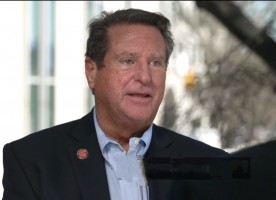President Donald Trump has chosen Penny Schwinn to serve as Deputy Secretary of Education amidst opposition and ethical concerns. Although her public image has faced controversies, the lack of concrete legal rulings raises questions about specific allegations. We encourage the U.S. Senate Committee on Health, Education, Labor, and Pensions and the Trump Administration to thoroughly evaluate her candidacy before automatically granting confirmation. Based on our experiences with her as Commissioner here in Tennessee, we strongly oppose her confirmation in this influential role at the National level.
Schwinn Background
Penny Schwinn and former Senator Dianne Feinstein are linked through Schwinn's early career, having interned for Senator Feinstein during her time in the Senate. This detail emerged from a resume Schwinn posted online over a decade ago. At that time, Feinstein was a prominent figure in California politics, having served as a senator since 1992 and previously as the mayor of San Francisco.
Penny Schwinn, a California native and UC Berkeley graduate, began her education training through Teach For America in Baltimore, where she taught high school history and economics from 2004 to 2007 while earning a Master of Arts in Teaching from Johns Hopkins University. After briefly leaving education for the private sector, she returned in 2008 as an administrator at St. HOPE Public Schools, a charter network founded by Kevin Johnson.
In 2009, Schwinn founded Capitol Collegiate Academy, a charter school in Sacramento, and in 2012, she was elected to the Sacramento County Board of Education with support from charter advocates. However, her initiatives faced criticism; GreatSchools rated Capitol Collegiate Academy’s academic performance below state averages. While some argue that successful schools take time to develop, critics view the ratings as evidence of inflated expectations.
Kevin Johnson established St. HOPE in 1989 as a nonprofit for community revitalization through education. Controversies, including allegations of financial mismanagement and sexual misconduct, marred his tenure. Johnson is now married to Michelle Rhee, a prominent figure in education reform.
In 2008, a federal investigation by the Corporation for National and Community Service revealed that Johnson misappropriated over $800,000 in AmeriCorps grant funds intended for St. Hope’s Hood Corps program between 2004 and 2007. Johnson and St. Hope faced a suspension from federal funding for using grant-funded volunteers for personal errands. Johnson repaid $423,836 to avoid prosecution, but critics saw this as exploiting public resources for personal gain. These violations occurred before Penny Schwinn's arrival and association with St. Hope.
Numerous women accused Johnson of inappropriate conduct during his time at St. Hope, with allegations spanning from a 1995 incident in Phoenix to claims from 2007 to 2009 involving St. Hope students and interns. A notable case involved a Sacramento High School student who alleged molestation in 2007, with the report made by teacher Erik Jones. The school’s response, led by Johnson’s associate Kevin Hiestand, was criticized for intimidation, resulting in Jones’s resignation.
Further allegations emerged in a 2016 HBO Real Sports episode, where former interns discussed unwanted advances. Johnson refuted the accusations against him, maintaining his innocence amidst a swirling controversy. While no formal criminal charges have surfaced as of yet, ongoing investigations have cast a shadow of uncertainty, stirring up serious questions regarding potential hush money payments and the intimidating specter of witness tampering.
During her tenure at St. Hope from 2008 to 2011, Schwinn was present during a tumultuous period marked by the federal investigation into financial misconduct and early allegations of Johnson’s inappropriate sexual behavior. Kevin Johnson and Johnson-aligned organizations supported her campaign for the Sacramento County Board of Education in 2012. California's School board elections are nonpartisan, meaning party labels do not appear on the ballot for school board candidates. However, she was closely connected to Johnson, the Democratic Mayor. While Schwinn was not directly implicated in the scandals, her connection to St. Hope associates her with a contentious chapter of Johnson’s legacy. His endorsement also raises serious questions. Her time at St. Hope deserves an explanation: "What did Schwinn know, and when did she know it?"
The controversies surrounding St. Hope, primarily related to Johnson's case, raise concerns about leadership. Schwinn's transition to a national educational role invites questions about her support for Johnson and how past events may affect her future actions as Deputy Secretary, particularly regarding Title IX, which protects students from sex discrimination and harassment. The links between Schwinn's early career, Johnson's leadership, and the scandals at St. Hope suggest a focus on personal ambition that warrants closer examination.
Schwinn transitioned from winning the Sacramento Board of Education to becoming assistant district superintendent. She has since worked in various high-level education positions across states, often surrounded by controversy and influenced by education reformers. Schwinn was part of the Broad Center’s 2014-2016 cohort.
Delaware
Penny Schwinn served as the Chief Officer of Accountability and Performance for the Delaware Department of Education under Democratic Governor Jack Markell. Her tenure was controversial due to the Priority Schools program, which aimed to improve low-performing schools but faced backlash for its punitive approach, requiring teachers to reapply for their positions, while ignoring issues like poverty and systemic inequity. The ACLU and the Community Legal Aid Society accused the Delaware government of unfairly discriminating against students of color and students with disabilities. These policies contributed to the resegregation of public schools in Delaware, leading to a grievance with the U.S. Department of Education's Office for Civil Rights.
Schwinn’s reliance on standardized testing also drew criticism for shaming rather than helping schools improve. Her comments during State Board meetings regarding crime and violence were seen as dismissive, creating tensions with African-American board members and highlighting a disconnect with community experiences. Funding challenges further complicated the Priority Schools program, as promised state funds often did not materialize, intensifying community frustration. Schwinn resigned in 2015, leaving a legacy of divisiveness and unmet goals in Delaware's education system.
Atnre Alleyne, a former employee of the Delaware Department of Education and the current head of DelawareCAN, filed a Freedom of Information Act (FOIA) complaint in 2024. This prompted a review by the Delaware Department of Justice, which found the Department of Education's response “unsatisfactory,” raising concerns about transparency and accountability in educational governance. The committee should request this information.
Texas
Penny Schwinn's tenure as Chief Deputy Commissioner of Academics at the Texas Education Agency (TEA) was significantly marred by the SPEDx scandal, highlighting serious ethical and operational failures. The $4.4 million no-bid contract awarded to SPEDx, a Georgia software startup, raised immediate red flags due to the lack of competitive bidding and Schwinn's undisclosed prior relationship with a subcontractor involved in the project. There were also concerns about data.
The situation escalated when a state audit identified this conflict of interest, revealing that Schwinn had received training from the subcontractor but failed to disclose this connection during the approval process of the contract. The implications of this oversight were profound, as advocates for students with disabilities voiced their concerns over the potential mishandling of sensitive student data.
Ultimately, TEA terminated the contract in December 2017 after spending $2.2 million, with only a fraction of the work completed estimated at around $150,000. The fallout from this incident led to financial repercussions, including the agency being ordered to repay over $2.5 million to the federal government. Still, it coincided with a federal report highlighting Texas' systemic failures in delivering adequate special education services.
Whistleblower complaints from TEA staff further compounded the controversy, suggesting a culture of dissent and raising questions about Schwinn's leadership and decision-making processes. Laurie Kash, the whistleblower who reported this incident. Kash was later awarded more than $200,000 in damages.
This environment of scrutiny and criticism contributed to her departure from Texas in 2019, as she transitioned to Tennessee's Education Commissioner.
In addition to the SPEDx scandal, Schwinn faced broader criticisms regarding her affiliations with organizations like Teach For America and an alleged bias towards charter schools. While these criticisms were more ideological, they added to the narrative of ethical concerns surrounding her tenure in Texas. The SPEDx incident is a clear example of mismanagement with substantial financial and reputational fallout, overshadowing her subsequent role in Tennessee and framing her legacy in education policy.
Tennessee
Penny Schwinn held the position of Tennessee's Commissioner of Education from February 2019 until her resignation in June 2023. Her time in office was characterized by controversies that sparked considerable debate among lawmakers, educators, and parents throughout the state. We will go into more detail in part two.
Florida
Penny Schwinn’s brief stint at the University of Florida in 2023, as Vice President for PK-12 and Pre-Bachelors Programs, added another layer of controversy. A Florida Auditor General report criticized her $367,500 salary as part of questionable hiring practices under then-President Ben Sasse, lacking clear justification or job description. Schwinn was not mentioned by name in the report, but the name of the position she held at UF was listed in the footnotes for each of the allegations about Sasse’s hiring process.
Many of the positions were offered salaries above market value, and the university did not follow a competitive recruitment process for hiring. Sasse allowed senior staff to work remotely without formal agreements, violating university policy. The auditors' report noted that records did not show how remote work was more necessary or beneficial than working on-site.
Florida Governor Ron DeSantis and Florida’s chief financial officer, Jimmy Patronis, called on the University of Florida to investigate allegations of spending using tuition and taxpayer dollars. Officials from the University of Florida stated that the President and another member of management determined the salaries for 19 individuals. The preliminary audit report revealed that the university did not provide records justifying these salaries. Concerns about compensation emerged after Schwinn's departure following Sasse's resignation, raising speculation about potential cronyism. However, as of now, no direct evidence of misconduct has been confirmed.
Scrutinize the Schwinn Choice Closer
Penny Schwinn's appointment warrants a meticulous and critical examination, as it unveils deep-seated concerns regarding her past and the potential ramifications for national education policy. While we anticipate her confirmation to move forward, it is imperative that U.S. Senators engage in thorough and scrupulous research into her professional journey before making their decisions. This situation calls for incisive questioning and a rigorous investigation, ensuring that American citizens are well-informed about who Penny Schwinn truly is and whether she represents the optimal choice for the Trump Administration and, indeed, for the American populace. It is essential that this process fosters transparency and accountability, guiding policymakers to uphold the integrity of our education system.
##
JC Bowman is the executive director of Professional Educators of Tennessee.











